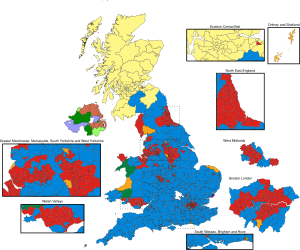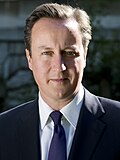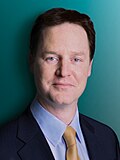
Back Britse algemene verkiesing van 2015 AF الانتخابات العامة في المملكة المتحدة 2015 Arabic Eleccions al Parlament del Regne Unit de 2015 Catalan Všeobecné volby ve Spojeném království 2015 Czech Etholiad cyffredinol y Deyrnas Unedig, 2015 CY Parlamentsvalget i Storbritannien 2015 Danish Britische Unterhauswahl 2015 German Γενικές εκλογές του Ηνωμένου Βασιλείου 2015 Greek Elecciones generales del Reino Unido de 2015 Spanish انتخابات سراسری بریتانیا (۲۰۱۵) FA
| |||||||||||||||||||||||||||||||||||||||||||||||||||||||||||||||||||||||
All 650 seats in the House of Commons 326 seats needed for a majority | |||||||||||||||||||||||||||||||||||||||||||||||||||||||||||||||||||||||
|---|---|---|---|---|---|---|---|---|---|---|---|---|---|---|---|---|---|---|---|---|---|---|---|---|---|---|---|---|---|---|---|---|---|---|---|---|---|---|---|---|---|---|---|---|---|---|---|---|---|---|---|---|---|---|---|---|---|---|---|---|---|---|---|---|---|---|---|---|---|---|---|
| Opinion polls | |||||||||||||||||||||||||||||||||||||||||||||||||||||||||||||||||||||||
| Registered | 46,354,197 | ||||||||||||||||||||||||||||||||||||||||||||||||||||||||||||||||||||||
| Turnout | 66.4%[1] ( | ||||||||||||||||||||||||||||||||||||||||||||||||||||||||||||||||||||||
| |||||||||||||||||||||||||||||||||||||||||||||||||||||||||||||||||||||||
 Colours denote the winning party, as shown in the main table of results. * Figure does not include the Speaker of the House of Commons John Bercow, who was included in the Conservative seat total by some media outlets. | |||||||||||||||||||||||||||||||||||||||||||||||||||||||||||||||||||||||
 Composition of the House of Commons after the election | |||||||||||||||||||||||||||||||||||||||||||||||||||||||||||||||||||||||
| |||||||||||||||||||||||||||||||||||||||||||||||||||||||||||||||||||||||
The 2015 United Kingdom general election was held on Thursday 7 May 2015 to elect 650 Members of Parliament (or MPs) to the House of Commons. It was the only general election held under the rules of the Fixed-term Parliaments Act 2011 and was the last general election to be held before the United Kingdom would vote to end its membership of the European Union (EU). Local elections took place in most areas of England on the same day.
Opinion polls and political commentators had predicted that the results of the election would cause a second consecutive hung parliament whose composition would be similar to the previous Parliament, which was in effect from the previous national election in 2010. Opinion polls turned out to have underestimated the Conservatives, however, as they won 330 of the 650 seats and 36.9% of the votes, giving them a majority of ten seats (not including the Speaker, who cannot vote or debate and must remain impartial). This won them the right to govern the country alone and the right for their leader, David Cameron, to continue as Prime Minister.
The Labour Party, led by Ed Miliband, saw a small increase in its share of the vote to 30.4% but won 26 fewer seats than in 2010. This gave them 232 MPs. This was the fewest seats the party won since the 1987 general election, when it had 229 MPs returned. Many senior Labour MPs, such as Ed Balls, Douglas Alexander and Jim Murphy, lost their seats.
The Scottish National Party won a landslide victory in Scotland, mainly at the expense of Labour, who had held a majority of Scottish seats in the House of Commons at every general election since 1964. The SNP won 56 of the 59 Scottish seats and became the third-largest party in the House of Commons.
The Liberal Democrats, led by outgoing Deputy Prime Minister Nick Clegg, had their worst result since their formation in 1988, losing 49 of their 57 seats, with Cabinet ministers Vince Cable, Ed Davey and Danny Alexander all losing their seats. The UK Independence Party came third in terms of votes with 12.6% but won only a single seat, with party leader Nigel Farage failing to win his seat of South Thanet. The Green Party won its highest ever vote share of 3.8% and retained their only seat.[2] In Northern Ireland, the Ulster Unionist Party returned to the Commons with two seats after their five-year long absence, and the Alliance Party lost its only seat despite an increase in their vote share. Following the election, Ed Miliband resigned as leader of the Labour Party and Nick Clegg resigned as leader of the Liberal Democrats.
The election is considered to have begun a political realignment in the UK, marking the end of the traditional three-party domination of the Conservatives, Labour and the Liberal Democrats seen throughout the 20th century. The Scottish National Party began its domination of Scottish politics. It also saw the last public appearance of Charles Kennedy, the former Leader of the Liberal Democrats, before his death on 1 June 2015.
Notable MPs who retired at this election included former Prime Minister Gordon Brown, former Chancellor of the Exchequer Alistair Darling, former Leader of the Conservative Party William Hague and former Leader of the Liberal Democrats Menzies Campbell. Notable newcomers to the House of Commons include: future Leader of the SNP in the House of Commons Ian Blackford, future Deputy Leader of the Labour Party Angela Rayner, future Leader of the Labour Party Keir Starmer and future UK Prime Minister Rishi Sunak. Another future UK Prime Minister, Boris Johnson, who had previously left Parliament in 2008 so he could serve as the Mayor of London, returned to Parliament as the MP for Uxbridge and South Ruislip.
- ^ "The May 2015 UK elections: Report on the administration of the 7 May 2015 elections, including the UK Parliamentary general election" (PDF). p. 3. Archived (PDF) from the original on 22 February 2017. Retrieved 15 May 2016.
- ^ Bawden, Tom (8 May 2015). "A victorious Caroline Lucas has perfectly summed up how negative our politics is". The Independent. Archived from the original on 19 December 2019. Retrieved 9 May 2015.
Cite error: There are <ref group=n> tags on this page, but the references will not show without a {{reflist|group=n}} template (see the help page).



